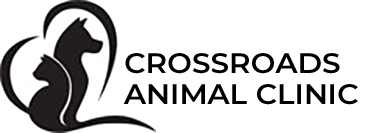Library
-
Penetrating wounds can look minor on the surface but may cause severe injury below the skin. A thorough assessment requires sedation or anesthesia and surgery may be required to address the extent of the injury. This handout outlines first aid steps a pet owner can take while transporting their injured pet to the veterinary hospital.
-
Penicillin G (brand names VetriPen G, PenOne Pro, others), is an antibiotic used to treat susceptible infections in cats, dogs, chickens, horses, livestock, ferrets, hedgehogs, rabbits, and other animals. It is used off label (extra label) in cats, dogs, and other companion animals. Penicillin G comes in injectable suspension form. Caution when using in rabbits and other animals sensitive to penicillin-like drugs.
-
A Penrose drain is a latex tube placed into a wound with one or two ends exiting the skin to passively remove unwanted fluid, usually from abscesses or open wounds. This handout provides post-operative wound care instructions for dogs sent home with a Penrose drain.
-
Pentosan polysulfate sodium is an injectable disease-modifying osteoarthritis drug (DMOAD) used to treat non-infectious and traumatic arthritis in dogs. It is also used off-label in cats. Follow your veterinarian’s instructions on how to administer the injection and dispose of the needle and syringe appropriately. Side effects are rare when given according to label recommendations and at prescribed intervals. Do not use in pets with a known hypersensitivity to it, in pets with known or suspected bleeding disorders or immune-mediated arthritis, or in pets with severe kidney or liver disorders.
-
Pentoxifylline is given by mouth and is used off label to treat skin disorders and poor perfusion due to inflamed blood vessels. Give as directed. Common side effects include vomiting, diarrhea, lack of appetite, excitement, or restlessness. Do not use in pets that are allergic to it, allergic to xanthines, or in pets with bleeding in the brain or eye. If a negative reaction occurs, please call your veterinary office.
-
Perianal fistula, also known as anal furunculosis is a serious medical condition that most commonly affects German Shepherd dogs. Perianal fistulas are characterized by chronic, purulent, smelly, ulcerating, sinus tracts in the anal region and surrounding skin. More recent studies indicate that the condition is more likely caused by an autoimmune disease. Medical management with immune-modulating drugs is now the preferred therapy. In severe cases, surgery is required to debride or remove as much infected tissue as possible.
-
Pericardial effusion refers to the abnormal accumulation of fluid in the sac surrounding the heart. Pericardial effusion can have a number of underlying causes, including inflammation, infection, cancer, and hereditary defects. Mild cases of pericardial effusion may be asymptomatic, but more significant fluid accumulations can interfere with the heart’s function and lead to severe effects such as sudden death. Treatment and prognosis is dependent upon the underlying cause of the condition.
-
A perineal hernia is a protrusion of tissue through the muscle of the perineum. Potential causes, clinical signs, and treatment are explained. The prognosis ranges from good to poor, depending on the ability to perform surgery and the pet's response to surgery. Perineal hernias have the potential to be life-threatening.
-
Perna is given by mouth and is used over the counter to treat inflammatory conditions such as arthritis in cats, dogs, and horses. Give as directed by your veterinarian. The most common side effects are gastrointestinal effects such as nausea and diarrhea. Do not use in pets that are allergic to it or other shellfish, or in pregnant or nursing pets. If a negative reaction occurs, please call your veterinary office.
-
A persistent tooth is a deciduous (baby) tooth that is still present when the permanent tooth erupts. When this happens, the baby tooth occupies the place in the mouth that is meant for the permanent tooth, forcing the permanent tooth to erupt at an abnormal angle or in an abnormal position. The result is crowding or malposition of the tooth, causing an abnormal bite (malocclusion). Early extraction is advised.

